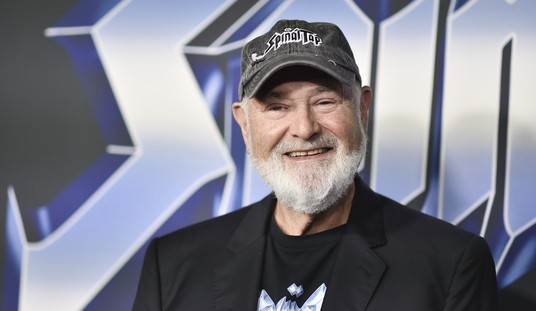Today is the 519th anniversary of Cristobal Colon’s (aka Christopher Columbus) discovery of what was to Europeans of the age a “New World.” But in keeping with these government-dominated times, it was celebrated (to the degree that it will be celebrated at all — such celebrations are now considered to be politically incorrect) on Monday, in order to allow some government workers a three-day weekend.
Popular mythology, at least as was taught in many schools,was that he was an explorer and adventurer seeking a new route to Asia. This held true until he became the fascistic ogre who allowed the plundering of the Americas and enslaving and massacring of Siberian-Americans — or more-recent revelations that we are perhaps celebrating the wrong Italian. So he persuaded Queen Isabella of Spain to hock her bling to finance his expedition.
Let’s ignore the fact that he was an awful navigator and misjudged the circumference of the globe by many thousands of miles, and that if America hadn’t been in the way of his route to Asia (he probably went to his deathbed thinking that he had gotten there), he and the crews of his three tiny ships would have died on the trip (probably him first, in a mutiny after which they might perhaps have turned back and lived, but probably not, because it would have been too late and their supplies would have run out). He blundered into it by dumb luck, and if he hadn’t found it, someone else (probably Portuguese, who were almost certain to bump into Brazil within the next ten or twenty years) would have soon.
The reality is the reason that Isabella scrounged up the moolah to finance his trip was that she was expecting a financial return — cheaper spices from Asia, at the time a hot commodity that involved long trips around the bottom of Africa and across the Indian Ocean, and back. She didn’t do it out of any noble search for scientific knowledge, and neither did he. He wanted to find wealth, seek fame, and spread the word of his religion (i.e., “God, Gold, and Glory”).
But in terms of space policy, we don’t seem to have learned the lessons of Columbus.
Since the sixties, our rationale for human spaceflight has always been described as for “exploration.” “For all mankind.” Star Trek, with its iconic beginning of “where no man has gone before,” did nothing to help. But space exploration for space exploration’s sake can’t justify the billions that we’ve been spending on it, particularly when robots are much more cost effective at it, and we haven’t “explored” anything beyond low earth orbit with humans in almost forty years.
It’s probably just coincidence, but it’s interesting that at the time of this anniversary of “exploration” by Columbus, NASA is slowly starting to take seriously the only viable rationale for human spaceflight — to actually create human settlements in space, for species preservation if nothing else — which is something that’s hard to do with robots. It’s admittedly a mixed message, but at least the topic is on the table:
This discussion comes as the National Academies is set to perform this fiscal year (2012) “a review of the goals, core capabilities, and direction of human space flight” as directed by the 2010 NASA authorization act. Some have likened this to a “decadal study” for human spaceflight, analogous to those performed in the sciences, although there is a debate about how useful such a study will be.
“We’ve charged in the bill the National Academies to do some work to try to help identify a consensus for what are the reasons for human spaceflight, what are some of the destinations that make the most sense,” Jeff Bingham, a senior advisor on the staff of the Senate Commerce Committee, said during a panel session of the AIAA Space 2011 conference last month in Long Beach, California. Space settlement advocates will soon find out how well their arguments stand up against other rationales for human spaceflight in that study — which, in turn, could provide some clarity for future space policy.
It’s not a new discussion, but it’s heretofore been implicit, such as in George W. Bush’s speech announcing the Vision for Space Exploration almost eight years ago, when he said that “human beings are headed into the cosmos.” But much of the speech was still couched in terms of the e-word, while hinting that the exploration should be a means, not an end. It’s time to make the discussion more explicit, because as the Augustine Panel agreed two years ago, if we aren’t doing this to settle space, then there is little point:
“We have just started, I think, to realize in the last eight or ten years that we do have a goal for the national space program,” [Greason] said. “There is a national consensus among policymakers that we have that goal, but everybody’s kind of afraid to say it, because they’re not sure we can do it.” That goal, he said, is the “s-word”: “It is actually the national policy of the United States that we should settle space.”
To support that claim, Greason cited a number of studies and speeches, including the conclusion of the Augustine Committee that “the ultimate goal of human exploration is to chart a path for human expansion in to the solar system.” He also noted President Obama’s speech at the Kennedy Space Center last April included a veiled reference to space settlement: “Our goal is the capacity for people to work and learn and operate and live safely beyond the Earth for extended periods of time, ultimately in ways that are more sustainable and even indefinite.”
If the s-word, and not the e-word, is the goal, what are the implications for our policy?
Well, first, it would imply that we have to make access to space much more affordable and sustainable (as the Aldridge Commission pointed out seven years ago). If we are serious about sending humans into space, we can no longer be spending billions to send a few people every year or two, as NASA currently plans (at congressional direction).
We have to have multiple, redundant, competitive means of getting humans into space, to drive down costs, and we have to start getting serious about research in the use of off-planet resources for propellant and life support, and learn how to close the cycle in environmental systems. It means that we have to start to understand the physiological implications of living in zero or partial gravity, and whether or not a full gravity is required for conception and gestation, and we have to find ways of ameliorating the health effects of radiation. It will also require the establishment of a system for recognition of off-planet property rights.
Unfortunately, congressional insistence on building a hyper-expensive “big monster rocket” that NASA doesn’t need, and that will enable neither exploration nor settlement, is wiping out available funds for all of these other critical studies and technologies without which we will not settle space. If Columbus had to deal with today’s Senate, instead of the more practical Isabella, he would have spent the rest of his days not exploring with available ships, but building a massive ship in a Spanish harbor — a ship that would be eventually canceled without sailing after the Portuguese had discovered the lands unreachable to him.
As the New World was, space will be settled. The only issue is by what nation or nations, and when. Absent an enlightened change in policy, it won’t be the U.S., or if it is, it will take much longer than it need be, and all of humanity’s eggs will remain in a single fragile basket until then.









Join the conversation as a VIP Member